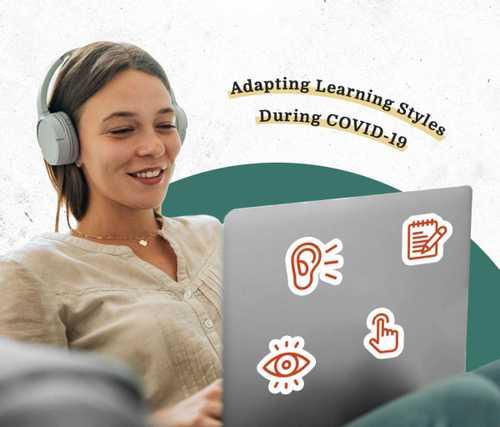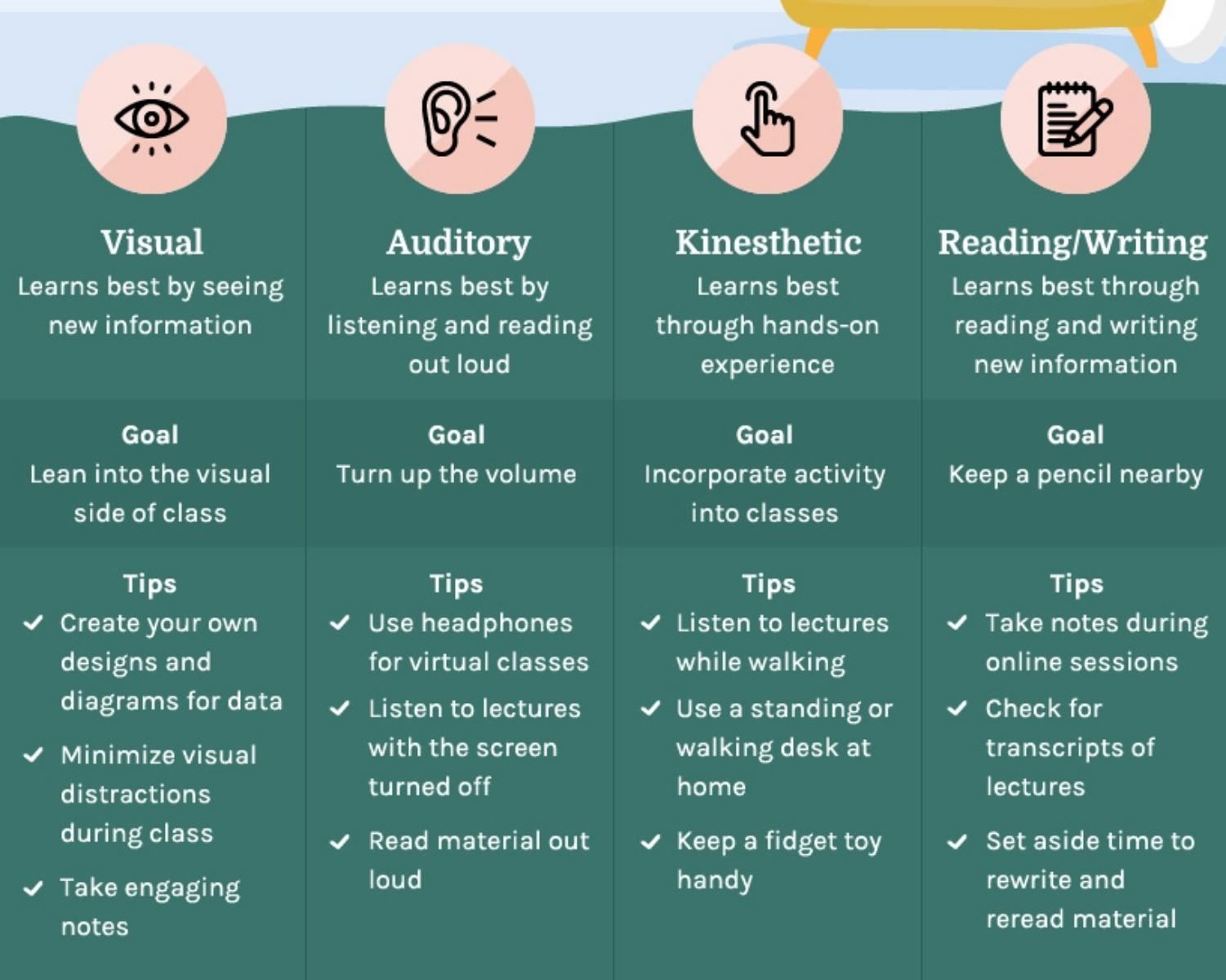Adapting Learning Styles During COVID-19
Curated from: thebestschools.org
Ideas, facts & insights covering these topics:
15 ideas
·820 reads
1
2
Explore the World's Best Ideas
Join today and uncover 100+ curated journeys from 50+ topics. Unlock access to our mobile app with extensive features.
Learning Style
The COVID-19 pandemic has created new challenges for college students.
During this unusual time for higher education, students can help themselves succeed by understanding how they learn best — and how to adapt that learning style for the COVID-19 era.
13
130 reads
The Different Types of Learners
Educators and psychologists have identified four main types of learners:
13
82 reads
1. Visual
The visual learning style responds best by seeing new information. Charts, videos, images, diagrams, and other forms of visual material help these learners absorb class material.
14
64 reads
2. Auditory
Auditory learners succeed when they can hear the course material. They do well with lectures and often learn best when they read material out loud to themselves.
14
59 reads
3. Kinesthetic
Also known as physical learners, kinesthetic learners need to try things out with their hands and move while they learn. They thrive in experiential and hands-on learning environments.
14
60 reads
4. Reading/Writing
As the name implies, reading and writing learners absorb information best when they can read and write it. They learn most easily from books and can benefit from taking notes during lectures.
14
56 reads
Understanding Learning Style
Understanding which learning style you have makes it easier to succeed in college. For example, auditory learners can modify their studying tactics to include reading out loud or listening to audio books, while kinesthetic learners can take a fidget toy to lectures.
14
61 reads
Other Types Of Learner
In actuality, there are many more than 4 types of learners. For instance, some students learn best when they're using logic to classify and categorize information. Others need a social setting to reinforce their learning. Still others learn best when they have to teach the material to someone else.
14
43 reads
Mix Learning Style
It's also worth remembering that most people have a mix of learning styles. It's rare to be a perfect match for only one style.
15
45 reads
Tips for Visual Learners
When learning from home, visual learners need to minimize distractions. Instead of studying next to a window and getting distracted by the outside, create a dedicated workspace and make class the most engaging thing in your eyeline. Visual learners can also make their own diagrams, designs, or even doodles; taking visual notes helps them retain information.
14
34 reads
Tips for Auditory Learners
Auditory learners can thrive in distance learning environments because online classes tend to place a greater emphasis on sound and listening. Auditory learners may benefit from using headphones when attending class to block out other sounds. If their professors don't mind, sometimes turning off the screen can help auditory learners focus on the material. Reading material out loud can also help auditory learners absorb new information.
14
34 reads
Tips for Kinesthetic Learners
Hybrid and virtual learning environments are particularly helpful for kinesthetic learners. Professors generally frown upon walking around during a lecture, but in a virtual environment, kinesthetic learners can turn on recorded material and move while they listen to or study it. A standing or walking desk can also help kinesthetic learners keep moving while actively engaging with their courses.
14
26 reads
Tips for Reading/Writing Learners
Many college classes already gear their material toward reading/writing learners. In an online format, reading/writing learners can increase their productivity by taking notes during online lectures and discussions. Some online platforms create automatic transcripts for lectures, which reading-centered learners can use to follow along or review content later. Rewriting and rereading also helps these learners cement new information.
14
32 reads
Go Ahead
What works for one learner won't work for everyone, and successful students often use a combination of strategies. So go ahead and try a few different approaches to see what works best for you.
13
44 reads
IDEAS CURATED BY
kurn 's ideas are part of this journey:
Learn more about personaldevelopment with this collection
How to manage workplace stress
How to prioritize and make better decisions
How to learn anything fast
Related collections
Similar ideas
7 ideas
7 ideas
What type of learner are you?
literacyplanet.com
12 ideas
Top 10 Study Tips | Study Techniques | Study Help for Students
youthcentral.vic.gov.au
Read & Learn
20x Faster
without
deepstash
with
deepstash
with
deepstash
Personalized microlearning
—
100+ Learning Journeys
—
Access to 200,000+ ideas
—
Access to the mobile app
—
Unlimited idea saving
—
—
Unlimited history
—
—
Unlimited listening to ideas
—
—
Downloading & offline access
—
—
Supercharge your mind with one idea per day
Enter your email and spend 1 minute every day to learn something new.
I agree to receive email updates





